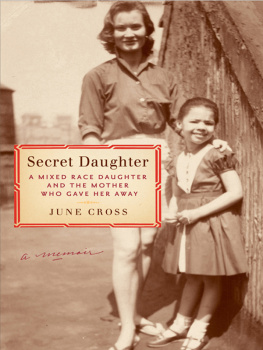She was malinka again the moment she got on the train, and she found it neither a pleasure nor a burden, having long since stopped noticing.
But it happened, she could tell, for no more could she answer without a second thought to Clarisse when, rarely, someone she knew took that same train and called to or greeted her as Clarisse, only to see her stare back in puzzled surprise, a hesitant smile on her lips, creating a mutual discomfort that the slightly flustered Clarisse never thought to dispel by simply echoing that hello, that how are you, offhandedly as she could.
It was this, her inability to answer to Clarisse, that told her she was Malinka the moment she got on the train to Bordeaux.
Had that been the name she was hailed by, she knew, she would immediately turn her head had someone spotted her face or recognised from afar her slender form, her always slightly unsteady walk, and called out: Hey there, Malinka, hello.
Which couldnt possibly happen but was she sure?
There was a time, now long gone, when, in another city, another part of France, girls and boys called her Malinka because they knew her by no other name, and she had yet to invent one.
It was not out of the question that a woman her age might one day accost her and ask in delighted surprise if she wasnt that Malinka from her past, from that school and that city whose name and look she, Clarisse, had forgotten.
And a smile would come to Clarisses lips, not hesitant but bold and assured, and she would be neither puzzled nor surprised, though she would most certainly not recognise that woman who claimed to have known her when she was Malinka.
But she would recognise her own name, and the way the last syllable hung in the air, trailing a wake of promises, of happy anticipations and unspoiled youth, which is why, at first, she would think there was no reason to allow any awkwardness between her and this old schoolfriend she couldnt recall, and why she would do her best to match her joyful expression, until she remembered the danger that came with consenting to be Malinka again, if only now and again.
What she would have to do then, she didnt dare even think.
The brusquely turned back, the scowl of feigned incomprehension, these went far beyond the timid violations of civility and good manners that a resolutely inoffensive Clarisse Rivire could even consider.
She sat in the train, eyes fixed on the window, on the specks and tiny scratches she never saw past such that she would have been hard put to describe this countryside shed been travelling through for years, once a month, one way in the morning, the other in the evening and trembled uneasily as she imagined having to hold herself back should someone call her Malinka.
Then her thoughts wandered, little by little she forgot why she was trembling, though her trembling went on and she couldnt think how to still it, in the end vaguely putting it down to the vibrations of the train, which, beneath her feet, in her muscles, in her weary head, chanted the name that she loved and despised, the name that filled her with both fear and compassion, Malinka, Malinka, Malinka.
It had not always been easy, when her daughter Ladivine was small, to make this covert trip to Bordeaux, spend a part of the day there, then be home early enough to arouse no suspicion.
But she had always succeeded.
Of that she was neither proud nor ashamed.
She had done what she had to, and would go on doing it until one of them died, and for that she had dug deep into her reserves
meagre, she knew of intelligence, ingenuity, strategy.
She sometimes thought she had none of those talents, or had lost them over the years, and yet somehow she drew on what she didnt have and came up with a workable system, perfectly suited to the situation.
But of that she was neither proud nor ashamed.
Like an animal, she did what she had to do.
She had no opinion on the matter, no emotion, only the stubborn, immovable, almost innate conviction that it was her twofold responsibility to act and to keep it a secret.
And when, arriving in Bordeaux, she set off on foot for the SainteCroix neighbourhood, always sticking to the same streets and the same sides of those streets, it was less the obligation of secrecy than her self-imposed duty never to weaken that kept her from taking a taxi, or later the tram, where some regular might someday spot her, speak to her, ask where she was headed, which Clarisse Rivire, who in this city was Malinka in spirit and incapable of falsehood, would have answered with nothing other than the truth.
Im going to see my mother, she would have said.
That she might have to speak such a sentence was unthinkable.
It would feel like a failure, in the one place where failure could never be forgiven or forgotten, or turned into a simple mistake: her very mission in life, which had no other purpose, she told herself, as resolute as she was evasive, than never to let it be known that Clarisse Rivire was Malinka, and that Malinkas mother was not dead.
She turned into the dark rue du Port, stopped at the houses sooty walls, used her key to get in, and there, in the damp entrance, opened the door to the flat.
Her mother, who knew she was coming, since Clarisse Rivire visited on the first Tuesday of each month, nonetheless always greeted her with the same cry of mock surprise, tinged with an unsubtle sarcasm:
Well, what do you know, its my daughter, at last!
And this had long since stopped grating on Clarisse Rivire, who realised it was simply her wronged mothers way of expressing what, deep down, must nonetheless have been affection and even tenderness for her, for Malinka, who in another life bore another name, unknown to her mother.
Of Clarisse Rivire Malinkas mother knew nothing.
But she was not so ignorant as not to know she knew nothing. She pretended not to suspect that on the first Tuesday of each month her daughter Malinka came to her from an existence more structured and less lonely than the one she had sketchily described for her long before, in which she seemed to live and work only as a sideline, solely for the sake of coming to visit her mother each month.
Clarisse Rivire knew full well that, if her mother pretended to be taken in, if she never tried to learn more, if it sometimes even seemed that her mother wanted at all costs not to know, it was because she understood and accepted the reasons for her secrecy.
Understanding them was one thing, but how and why should she accept them?
Oh, for that, for her mothers mute submission to what should have enraged her, Clarisse Rivire would never, as long as she lived, have time enough to be grateful, with a gratitude dulled by resentment and despair, and to atone.
And yet what she had done was her duty.
It wasnt a thing to be justified or explained or excused.
Clarisse Rivire did not think it enough that her mother, having understood, and feeling the sorrow and sting of that understand- ing no-one could be told of, had become a difficult woman, petulant and volatile, often hurtful.
She wanted her more difficult still; she wanted her hateful and furious.
But the thing itself could not be spoken of.
It could only be expressed by irritability and antagonism, and even then only so long as these outbursts didnt bring them too near the words of the thing that could not be spoken of.
Clarisse Rivire sometimes thought that those words, were they spoken, would kill them both her because what she had done, what she thought it her duty and obligation to do, could not be forgiven; her mother because to the humiliation of this treatment would be added the humiliation of having known and accepted it, albeit with anger and spite.










